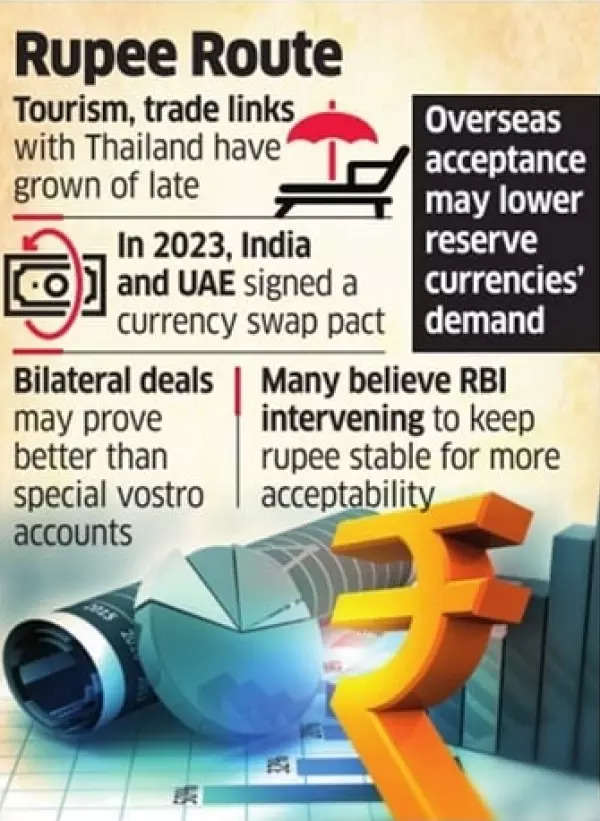The Indian government and the Reserve Bank of India (RBI) are exploring the possibility of popularizing the rupee in Thailand, a popular destination for Indian tourists and businesses.The central bank has requested banks to provide their inputs and expectations regarding transactions linked to Thailand, as authorized dealer banks have insights into travelers’ destinations, international card spends, and trade invoices.
“They have asked for our feedback. I think there are plans of some rupee arrangement with Thailand. It’s in the early stages, as far as we can make out,” a senior banker told ET.

Rupee route
India has been attempting to internationalize the rupee in recent years, with limited success. Internationalization involves the use and holding of the local currency beyond India’s borders, not only for transactions between residents and non-residents but also between residents of countries other than India.
In mid-2023, India entered into a swap deal with the United Arab Emirates (UAE), allowing exporters and importers from both countries to invoice and pay in their respective local currencies to settle trades.
Also Read | India prepares for ‘One Airspace’: Unified air traffic control plans set in motion – what it means
Central banks play a crucial role in currency arrangements by acting as backstops, exchanging foreign currency for the domestic one. This instills confidence in individuals and entities to accept foreign currencies from buyers of goods and services.
“We don’t know whether India and Thailand are contemplating a swap agreement, but it is possible, given the extent of travel and trade,” said a person in the know.
Indians comprise the fourth largest group of tourists visiting Thailand, with Bangkok surpassing Dubai as the outbound travel destination for Indians since visa relaxation.
Also Read | These routes in India have base airfares of less than Rs 1,000! One route has a base fare of Rs 150 – check list
Promoting the local currency through bilateral swap deals with different countries was a strategy employed by China to make the yuan more widely accepted. “Once a bilateral swap is in place, it could gradually help in creating a market for the currency abroad. India may be pursuing a similar course,” said another person. Increased overseas acceptance of the local currency could potentially reduce the demand for standard reserve currencies like the dollar and euro.
Bilateral deals may also yield better results than the special vostro account RBI permitted to facilitate trade settlement in rupee with Russia following the outbreak of the Ukraine war in February 2022. Many bankers and economists believe that RBI’s market interventions to maintain rupee stability are aimed at increasing its acceptability as a less-volatile unit for cross-border trade payments.

